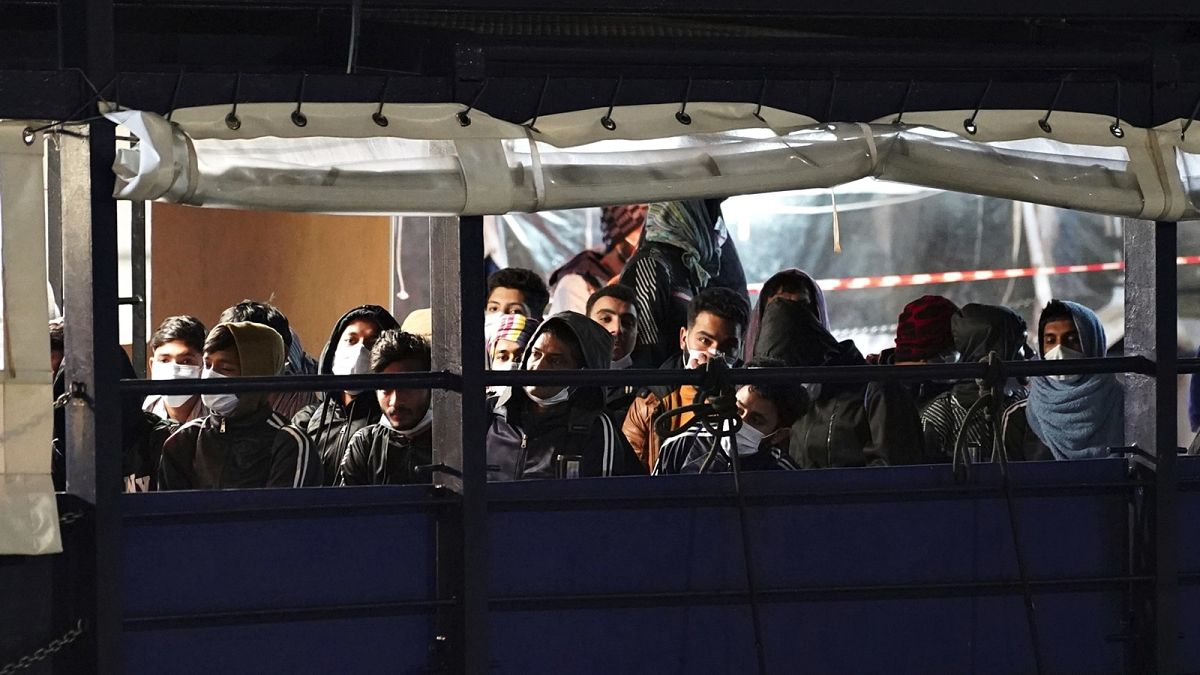Reform of EU migration policy won’t lead to Rwanda-style plans, says Ylva Johansson
The reform of the European Union’s migration policy will not encourage the outsourcing of asylum requests, Ylva Johansson has said. “Do we need to work with third countries to manage migration? My answer is definitely yes. We are already doing that and it’s necessary to do it even more. Nobody can manage migration alone,” the European […]


The reform of the European Union’s migration policy will not encourage the outsourcing of asylum requests, Ylva Johansson has said.
“Do we need to work with third countries to manage migration? My answer is definitely yes. We are already doing that and it’s necessary to do it even more. Nobody can manage migration alone,” the European Commissioner for Home Affairs said on Tuesday afternoon. “So we need to work with partner countries and we need to work along the routes and we need to fight the smugglers together.”
“Should we send away people that are on the EU territory applying for asylum to a third country? My answer is no. (We’re) not open for that in the Pact.”
Johansson was referring to the New Pact on Migration and Asylum, the bloc’s comprehensive reform that foresees common rules to manage the arrival of asylum seekers, fast-track the applications of those with low chances of success, and ensure a fair distribution of those granted international protection.
The New Pact was provisionally agreed upon in December and is set to receive the final greenlight from the European Parliament and member states next month, capping off almost four years of intense negotiations.
In parallel to the reform, the EU has stepped up efforts to reinforce the so-called “external dimension” of migration by designing bespoke agreements with neighbouring countries, including Tunisia, Mauritania and, soon, Egypt. In exchange for receiving a wide range of EU funds, the countries are expected to improve their border management and reduce departures of migrant vessels.
But in a move that took Brussels by surprise, Italy took the “external dimension” a step further and signed last year a protocol with Albania to process up to 36,000 asylum applications per year in the Balkan country.
The special procedure will apply to migrants who are rescued at sea by Italian authorities and then disembarked in the Albanian coastal town of Shëngjin, where two centres will be built at Rome’s expense and exclusively governed under Italian jurisdiction. Those granted international protection will be sent to Italian territory.
The Italy-Albania deal was harshly criticised by humanitarian organisations, who saw it as an unlawful case of extraterritoriality that could lead to human rights violations.
The Commission did not object to the deal but stressed its implementation had to be in line with EU law, including the provisions of the New Pact once adopted. President Ursula von der Leyen later described it as an “example of out-of-the-box thinking, based on fair sharing of responsibilities with third countries.”
The question of outsourcing resurfaced last week after von der Leyen’s party, the centre-right European People’s Party (EPP), adopted a manifesto for the EU elections calling for agreements to ensure “anyone applying for asylum in the EU could also be transferred to a safe third country and undergo the asylum process there.”
“In case of a positive outcome, the safe third country will grant protection to the applicant on-site. A comprehensive contractual agreement will be established with the safe third country,” the manifesto reads.
The project immediately evoked comparisons with the Rwanda plan, which Britain tried to pursue to fly asylum seekers to the African country. The plan was subject to a lengthy legal battle and eventually deemed unlawful by the country’s Supreme Court.
Speaking on Tuesday, Johansson stressed the New Pact would not pave the way for a Rwanda-style type of deal to send applicants away.
However, the Commissioner stressed the Italy-Albania protocol was “totally different” because it would apply to migrants who are rescued in international waters, not to those who have already entered Italian territory (and therefore EU territory).
“If they (receive) asylum, they will be transferred to Italy,” Johansson said. “So it’s not about externalising the asylum process.”
Last year, the EU received 1.14 million applications for international protection, marking a seven-year high. About a third of these were filed by migrants who arrived in the bloc through irregular means, Johansson said.














